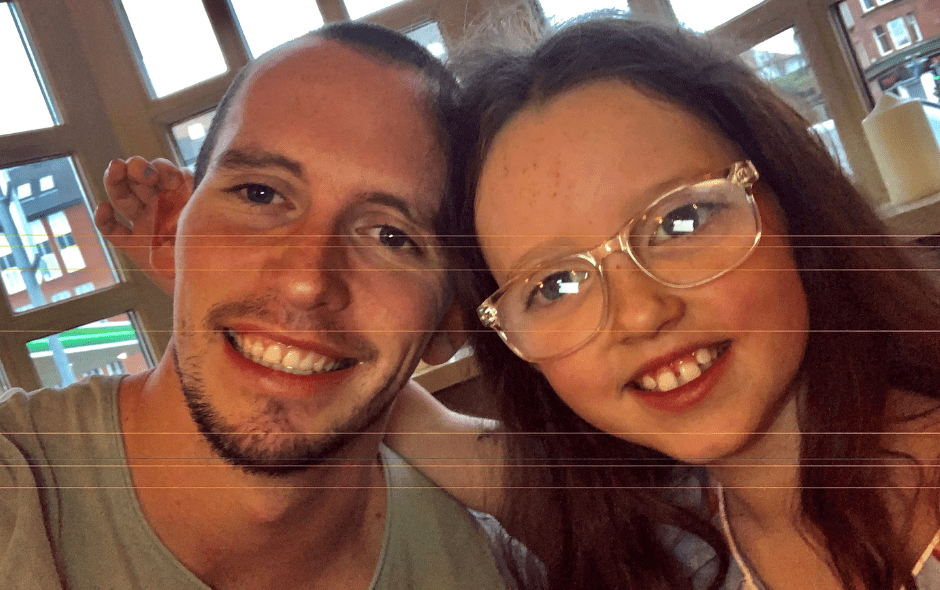Phil was diagnosed with epilepsy when he was a teenager. He shares the support he has received from his employers, how he felt when he was first diagnosed and how he copes with the everyday stresses of working.
How did you feel when you were first diagnosed with epilepsy?
It happened a long time ago, so I was probably 17 when I had my first full on seizure, but I probably had epilepsy a lot younger than that.
I was having conscious seizures, so nobody really knew what it was, and I was quite good at hiding them until the first unconscious one happened.
Then that’s what made me go and get the MRI scan and that was when they realised that I had epilepsy, because I was that young, I didn’t really know what I was doing in life and I was quite a silly age.
I didn’t know anyone that had epilepsy and I’d never really read into it. Also, I didn’t really know that it was a lifelong condition and didn’t really know what to expect.
I thought it was just something that a couple of pills would fix and after one seizure that would be me. But of course, it didn’t really come out like that.
Do you feel you faced any barriers or limitations in your career because of your epilepsy?
Not in terms of my career. Thankfully, I’ve been in the same company since I was 20.
When the seizures were really bad when I was between 20 and 24, I was in the Glasgow office and they were actually amazing.
I can’t praise them enough for how much they helped me because the number of times I had a seizure in that office and it was always the same people who would always help me and support me.
Probably the job role itself didn’t exactly help, but the support that I got off them was amazing.
Thankfully, I haven’t had any seizures in this office in Livingston.
I don’t know how they would react, but I certainly wouldn’t expect them to react any different, but the support that I got off the site in Glasgow and off my peers in Glasgow was amazing.
From calling my daughters mum if it happened or calling my parents they would come up into the office.
Just come and see how I was and if they weren’t available, then somebody on site would come to the hospital in the ambulance with me just things like that.
I don’t think many companies would and not many individuals would care that much for somebody.
How do you manage your stress levels whilst working and make sure that doesn’t trigger a seizure?
There is a lot of things I do and especially from March 2021 onwards.
Before then, I didn’t really have anything I would just get on with it and just try and live and learn through the stresses of life.
In October 2020, my daughter saw her first seizure when she was five. I can’t imagine it was a very good sight for her to see.
So, after that and then having a few more seizures in March, I decided that I needed to learn to control the stress levels inside me.
At the start of each day at work. I write down the 10 strongest things that I am stressed about and then you list them from 1 to 10, 1 being the most important and then 10 being the least in your eyes.
Then you look at how much of that you are in control of that normally minimises it by about 50 to 70%.
Sleep is one of the most important ones when it comes to having a seizure, so if that means that you need go to bed at 10 o’clock because you’re up at 6 o’clock the next morning, then, that has to happen.
All you’re doing is looking after your health. Your right friends will definitely support you in that case as well. Your family as well.
What advice would you give to anyone living with epilepsy who is worried about their career prospects?
I would say that it’s completely normal to feel worried to a certain extent. But at the same time, I don’t really think they should let themselves feel worried about it.
There’s so much going on about mental health in the world and so much chat about how companies look much more positively on it.
If anything, use it as a motivation, and don’t let it hold you back and use it as a motivation to keep yourself healthy and to keep on learning and to keep on adapting and keep on analysing your own personal epilepsy, because every epilepsy is different.
What triggers you might not trigger me. Everyone’s epilepsy is different, so there’s no real magic pill out there.
The way technology is going, there’s always hope out there and there’s no point in losing hope because all you’re going to do if you lose hope is increase the chance of you having a seizure because then you’re stressed.
So always look at it from a positive angle, even if that means speaking to a friend who really knows you because these friends don’t come along that often.
You’ve probably got about 20 friends, but really three or four of them, are true friends.
They will back you to the hilt and stay with you through anything and they are the ones that you want to be having a couple conversations with.
If you would like to share your experiences of living with epilepsy, please email David Coates our Communications Officer at dcoates@epilepsyscotland.org.uk or call 0141 427 4911.




